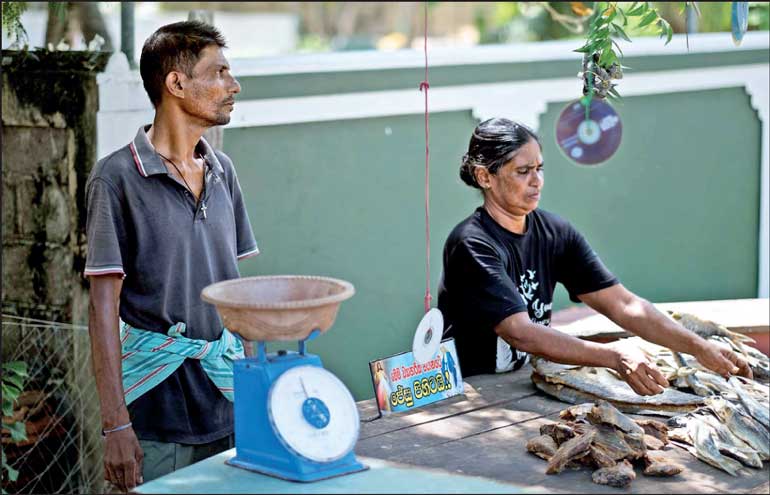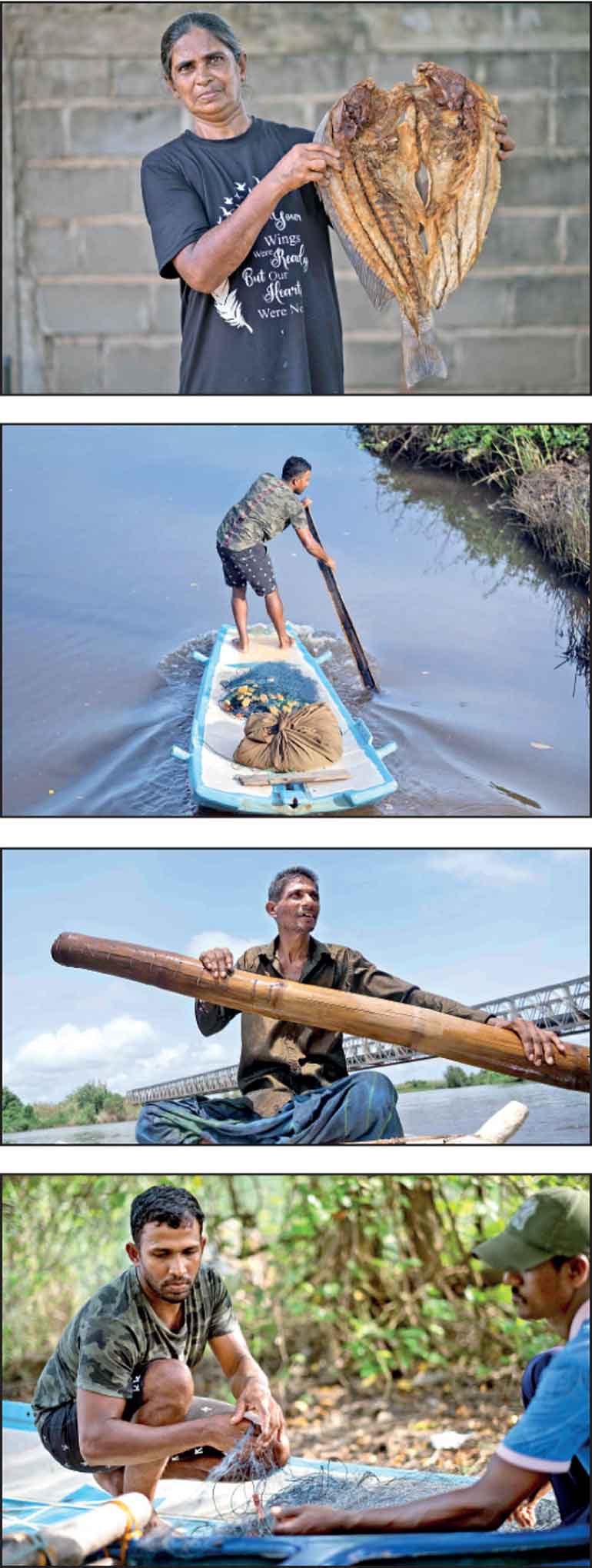Wednesday Feb 25, 2026
Wednesday Feb 25, 2026
Monday, 10 July 2023 00:04 - - {{hitsCtrl.values.hits}}


By the time the sun rises over Thuduwawa, a tiny town in the District of Chilaw in Sri Lanka that is fringed by both the ocean and lagoon, its fishermen are already making their way to shore, hauling home their catch of the day after enduring a demanding early morning at sea.
Among these hardworking small-scale fishermen are Don Jude Nimal and Madushan Prabodana Nonis, who have been practising raft fishing, also known as ‘theppam’ fishing, throughout their lives. While their livelihood has always presented challenges, the ongoing economic crisis exacerbated by the COVID-19 pandemic, has plunged them into greater hardship. The lack of alternative income opportunities, particularly during the six months of high tide, has heightened their vulnerability to food insecurity.
In response, the Food and Agriculture Organisation of the United Nations (FAO), with funding from the Foreign, Commonwealth and Development Office (FCDO) of the United Kingdom, launched a project to provide immediate food and livelihood support, focusing on non-motorised traditional boat (NTRB) fishers. Through this initiative, unconditional cash transfers have been extended to over 5,000 fishing households across nine fisheries districts, including Thuduwawa in Chilaw, alongside Tangalle, Negombo, Colombo, Kalutara, Galle, Matara, Puttalam, and Mannar.
Don Jude Nimal and Madushan Prabodana Nonis are among the many beneficiaries who have received this vital cash relief, which has shone a glimmer of hope amidst their adversities.
The 57-year-old Don Jude has never attended school and began fishing at the age of 13, following in his father’s footsteps. Raft fishing enabled him to educate his children who now hold respectable jobs; a source of great pride for him. Describing the impact of the economic crisis, he shared, “This current economic crisis has been tough on us fishermen. Some families in our village couldn’t even afford to send their children to school, and I have witnessed many parents struggling to provide a single meal for their children.”
Expressing his gratitude for FAO’s cash transfers, Don Jude stated, “With the first round of funds I purchased fishing nets, and with the subsequent donation, my wife bought essential groceries. As we enter the next six months during which fishing would be perilous, stocking up on food supplies is crucial.” He believes that the donors and their countries will be blessed for their assistance during these destitute times. Despite his injured leg, Don Jude has remained resilient, finding alternative ways to contribute to his household’s income. He explained that he and his wife buy fish from large boats and process them into dry fish to sell. His wife plays a crucial role in their livelihood, assisting with various tasks such as making dry fish, selling fish, and repairing nets.
Speaking of the detrimental effects of the fuel shortage on his community, he said that it became financially impossible to fish during the period. The increased cost of fuel made it non-viable to take the rafts to the ocean, resulting in higher fish prices that buyers were unwilling to pay. Furthermore, the price of fishing nets soared, adding to their challenges.
Another beneficiary, the 30-year-old Madushan who also grew up in a family of fishers, tells us, even though he completed his GCE Advanced Level examinations, he too became a fisherman due to the lack of job opportunities in his community. When his second child was born during the peak of the pandemic, the family had to face severe financial difficulties. “The nutrition of our children suffered immensely during this time because the price of goods increased exponentially. We are glad to have received the emergency cash assistance at this juncture as we used it for both the nutritional and educational needs of our children,” he explained.
Recalling the fuel shortage in 2022, he said “The lack of fuel didn’t just affect our livelihood but also our ability to travel even for essential purposes like buying medicine for our children. We were forced to endure long queues for days just to obtain a meagre amount of fuel.” Madushan emphasised that the challenges extended beyond fuel scarcity, as fishing equipment prices surged by up to 100%, further burdening their livelihood.
“The escalating costs made it increasingly difficult for us to sustain our fishing activities,” he lamented. However, the timely cash relief proved invaluable. “With the financial assistance, we were able to buy groceries for our home and invest in essential fishing equipment and fuel,” Madushan expressed.
Madushan and his wife, Awishta Sankalpanee, continue their laborious work, aspiring to create improved prospects for their children. He concludes, “Through our hard work and earnings, we hope to educate our children so that they can achieve a higher social standing with better facilities and become valuable contributors to our country.”
FAO’s cash transfers have enabled small-scale fisherfolk like Don Jude and Madushan to improve their purchasing power, increase access to nutritious food, and revitalise their livelihoods. With support from the United Kingdom, as well as other partners, FAO’s programme aims to enhance food and nutrition security for vulnerable fishing communities affected by the economic crisis in Sri Lanka.